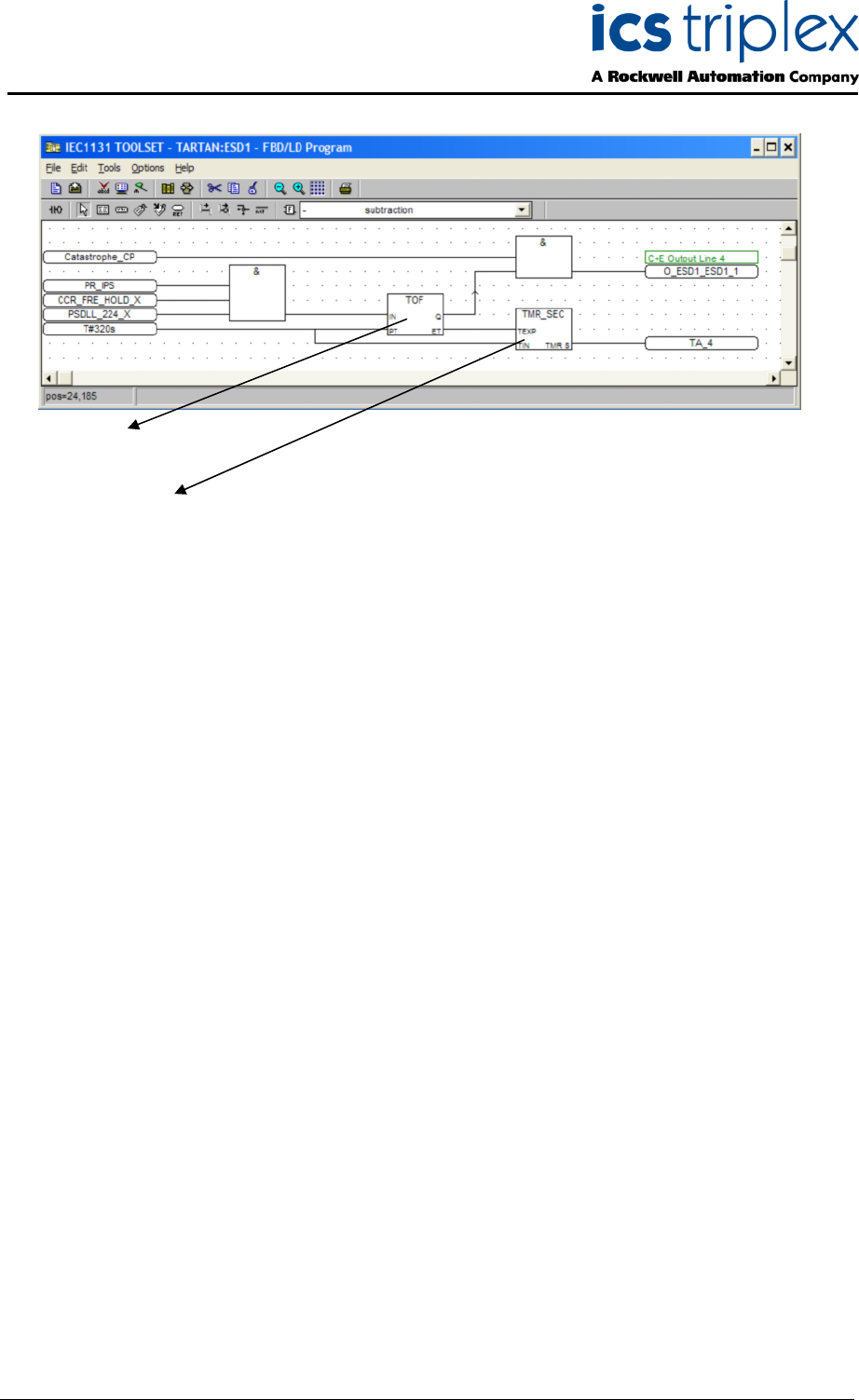Instruction Manual
Table Of Contents
- Intelligent Update Enhancement
- Enabling Intelligent Online Updates
- Manual function block matching (from release 3.5.1)
- Operation
- Important Information
- Intelligent Online Update Manager Window
- Intelligent Update Manager Options
- Match Function Blocks Window
- Intelligent Updates Manager Reports
- Operation
- Supported Changes
- General Rules
- Temporary Variables and Function Blocks (before release 3.5.1)
- Other issues
- Toolset upgrade to 3.51
- Virtual boards
- Unused local variables
- Baseline version
- Instance data limit exceeded
- Conversion tables
- OEM parameters
- ‘NO CHANGE’ when changes have been made
- Attribute changes
- Forced I/O
- Don’t delete the APPLI.MDF and APPLI.MDH files
- Real inline constants
- Don’t Update Later
- Processor hot swap and online update
- Counting Timer and update
- IOU Manager Options
- CRC Differences
- Communications Blackout
- Compilation for Intel
- Constant variables not updating when set to 0 initially
- Power Flow Debugging option change causes update problems on untouched programs

Trusted
TM
AN-T80009 Trusted
TM
Intelligent Online Updates
Issue 4 Nov 08 AN-T80009 25
In the example above, there are two function block instances, shown by the arrows. The FZesd10712
instance (TOF) is only distinguishable by the parameters it receives in the following brackets.
The code above was generated using Toolset build 111. Note that the FZesd10712 code nests the
AND gate inside the input parameters. Earlier Toolsets did not nest logic; they would create a
temporary variable as the result of the AND gate, and then send that to the FZesd10712 instance.
If power flow debugging was enabled, then the AND gate result would be written to a temporary
variable, that temporary variable would then be written to another temporary variable, and finally the
FZ10712 instance would receive the second temporary variable.
The IOU manager has to interpret this code and decide which instance in the old logic matches the
instance in the new logic. The ‘FZesd10712’ name may have changed, and the names of the
temporary variables may also have changed.
If the Power Flow Debugging setting has changed since the previous compilation, then temporary
variables and code will have been added or deleted. The Power Flow Debugging option applies
globally to all programs but only takes effect if the program is compiled. If the dictionary is changed,
then all programs are compiled. It is possible for some programs to be compiled with power flow
debugging and some without, if the compiled code is not first deleted by the ‘Touch’ menu option.
This is clearly a source of confusion to the IOU manager.
It is possible to set the Power Flow option as it was on the previous PC, but then leave the program
unsaved. The program code is unchanged, and the next IOU will see no change. However, if other
programs were last compiled with the opposite Power Flow option, these will be affected by the
change.
The solution is to upgrade the Toolset to release 3.5.1. This creates more rational code and the IOU
manager is adapted to determine the true source of the inputs of a function block, so it is not affected
by power flow debugging options.
FZesd10712 ( ( PR_IPS & CCR_FRE_HOLD_X & PSDLL_224_X ) , T#320s ) ;
O_ESD1_ESD1_1 := ( Catastrophe_CP & _FZesd10712.Q ) ;
TA_4 := TMR_SEC ( _FZesd10712.ET , T#320s ) ;










